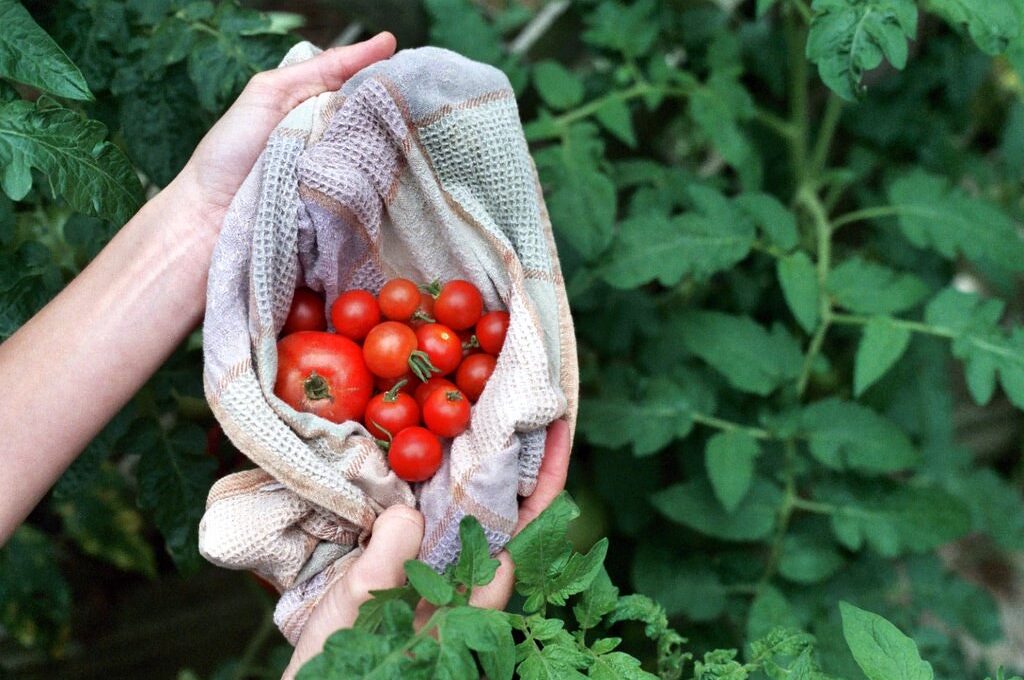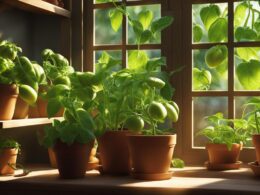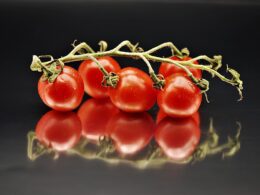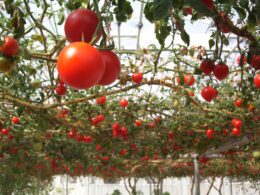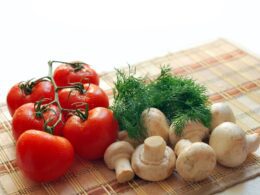You’ve probably heard the old wives’ tale about adding Epsom salt to the planting hole when putting your tomato plants in the ground. It’s said to promote healthy growth and produce better yields. But is there any truth to this gardening tip, or are you just wasting time and resources?
In this article, we’ll explore the science behind Epsom salt and tomatoes, weighing the pros and cons of adding it to your planting holes. We understand that you want nothing but the best for your garden – a little slice of safety amid life’s chaos.
So let us guide you through understanding Epsom salt, its effects on tomato plants, and how best to use it in your garden. With clear explanations and simple language, we’ll help you make an informed decision on whether or not to add Epsom salt when planting tomatoes.
Understanding Epsom Salt
Before diving into whether it’s a good idea to use Epsom salt when planting tomatoes, let’s first explore what this substance is all about.
Epsom salt is a naturally occurring mineral compound made up of magnesium and sulfate. It has been used for centuries as a remedy for various health issues and as an important component in gardening.
Magnesium plays a vital role in the growth and development of plants, while sulfate aids in nutrient absorption. You might be wondering how Epsom salt can benefit your tomato plants. Well, magnesium is essential for the production of chlorophyll, which enables plants to convert sunlight into energy through photosynthesis.
A lack of magnesium can result in weak, yellow leaves and poor fruit production. Sulfate contributes to the overall health of your plant by helping it absorb essential nutrients like phosphorus and nitrogen more effectively.
So now that you have some background on Epsom salt and how it can potentially benefit your tomato plants, we’ll move on to discussing its application when planting tomatoes specifically. Remember that understanding the components and benefits of any substance you introduce to your garden is key to ensuring their safety and success!
The Science Behind Epsom Salt and Tomatoes
It’s essential to understand the scientific relationship between Epsom salt and tomato plants for successful gardening. Epsom salt is a popular garden supplement because it contains magnesium sulfate, which provides two vital nutrients for plants: magnesium and sulfur.
Magnesium plays a crucial role in photosynthesis, helping with chlorophyll production, while sulfur aids in the formation of essential amino acids and vitamins. When it comes to tomatoes, these nutrients can lead to increased yields and healthier plants.
Magnesium deficiency in tomato plants can cause yellowing leaves, slow growth, and poor fruit development. By adding Epsom salt to your planting hole or as a foliar spray during the growing season, you are providing your tomatoes with an extra dose of magnesium that they may not receive from the soil alone.
Regularly using Epsom salt when planting tomatoes can help ensure your plants get all the vital nutrients they need for optimal growth. As a result, you’ll enjoy robust plants with delicious fruits that will keep you feeling nourished and safe knowing you’ve taken good care of them from start to finish.
So go ahead – give those tomato seedlings some love with a sprinkle of Epsom salt before placing them into their new home!
Pros of Adding Epsom Salt to Tomato Planting Holes
Ready to boost your tomato plants’ health and yield? Let’s explore the benefits of adding Epsom salt to their planting holes!
Epsom salt is a natural compound that contains magnesium and sulfur, two essential nutrients for healthy plant growth. When you add it to the hole before planting your tomatoes, you’re giving them a head start by providing these vital nutrients right where they need them.
One major advantage of using Epsom salt is that it can help prevent blossom end rot, a common problem in tomato plants caused by calcium deficiency. Magnesium aids in the uptake of calcium, so having adequate levels of magnesium helps your plants absorb calcium more efficiently. Plus, sulfur assists in the formation of chlorophyll which boosts photosynthesis – this means stronger and greener leaves for your tomato plants!
With improved nutrient uptake and better overall plant health thanks to Epsom salt, you can expect higher yields from your tomato plants as well as tastier fruits!
So when you’re preparing those planting holes for your tomatoes this season, don’t forget to sprinkle some Epsom salt in there – it’s an easy way to ensure healthier plants and a bountiful harvest. Your future self will thank you for taking this simple step towards growing success!
Can Baking Soda and Epsom Salt be Used Together as Fertilizer for Tomatoes?
Many gardeners wonder if using baking soda for tomato fertilizer is effective. While baking soda is often used as a natural fungicide and can help prevent diseases on tomato plants, it does not provide essential nutrients for their growth. Epsom salt, on the other hand, can be used to provide magnesium and sulfur to the soil, which can benefit tomato plants. Therefore, a combination of baking soda and Epsom salt may not be ideal as a sole fertilizer for tomatoes.
Cons of Adding Epsom Salt to Tomato Planting Holes
So, you’ve heard about the benefits of adding Epsom salt to your tomato planting holes, but are there any downsides?
Let’s delve into a discussion on the potential risks of soil imbalance and dangers of overuse when using Epsom salt in your garden.
By understanding both sides, you’ll be better equipped to make an informed decision for your tomatoes’ health.
Potential Soil Imbalance
Imagine the frustration of unknowingly creating a soil imbalance while trying to give your precious tomato plants the best possible start! Adding Epsom salt to the planting holes might seem like an excellent idea, but it can lead to potential soil imbalances that could be detrimental to your tomatoes’ growth.
This is especially true if you don’t test your soil beforehand and understand its existing nutrient composition. Here’s why adding Epsom salt without proper knowledge can be risky:
-
Excess magnesium: Epsom salt contains magnesium, which is essential for plant growth. However, too much magnesium can cause a deficiency of other nutrients like calcium and potassium, leading to weak plants and poor fruit production.
-
pH level alteration: Epsom salt has an alkaline effect on the soil, raising its pH levels. Tomato plants prefer slightly acidic soil with a pH between 6.0 and 6.8. A higher pH may reduce the availability of other essential nutrients required by your tomatoes.
-
Over-fertilization: If you’re already using a well-balanced fertilizer for your tomato plants, adding Epsom salt may result in over-fertilization, causing excessive foliage growth at the expense of fruit development.
-
Salt buildup: Excessive use of Epsom salt can lead to a buildup of salts in the soil, which may harm beneficial soil organisms and damage plant roots.
So before you reach for that bag of Epsom salt when planting tomatoes, make sure you’ve done thorough research on your garden’s specific conditions—this way, you’ll provide your beloved tomato plants with a safe environment where they’ll thrive and produce delicious fruits!
Overuse Dangers
Don’t let your enthusiasm for a bountiful tomato harvest lead to overusing Epsom salt, as it can pose significant dangers to your plants.
Overdoing it with Epsom salt may cause more harm than good by creating an imbalance in the soil’s nutrient levels. Too much magnesium and sulfur in the soil will compete with other essential nutrients like calcium and potassium, which tomatoes also need to thrive.
Keep an eye on your plants’ health and growth, as excessive Epsom salt use could result in stunted growth or even plant death. Additionally, you might see signs of nutrient deficiencies such as yellowing leaves or poor fruit production if there’s too much magnesium and sulfur present.
Remember that moderation is key when using any supplement or amendment in your garden; always follow recommended dosages and application methods to ensure the safety of both you and your precious tomato plants.
Best Practices for Using Epsom Salt in Your Garden
When it’s time to give your garden a boost, incorporating Epsom salt can work wonders, especially for those tomato plants! Epsom salt contains magnesium and sulfur, which are essential nutrients that promote strong root systems, healthier foliage, and more productive fruiting. However, it’s important to follow best practices when using Epsom salt in your garden to ensure you don’t overdo it and cause harm to your plants.
Some best practices include:
- Applying a balanced fertilizer along with the Epsom salt: This ensures that all necessary nutrients are available for plant growth.
- Diluting the Epsom salt in water before applying it: A solution of 1 tablespoon per gallon of water is recommended for most applications.
- Monitoring soil pH levels: If the pH becomes too high or too low due to Epsom salt application, adjust accordingly using lime or sulfur treatments.
Remember that moderation is key when using Epsom salt in your garden. Overuse can lead to nutrient imbalances and even damage your plants. It’s generally a good idea to apply an initial treatment at planting time by mixing a small amount into the planting hole and then using foliar sprays or drenches every few weeks during the growing season.
Keep an eye on how your tomato plants respond – if they show signs of thriving without any adverse side effects like yellowing leaves or reduced fruit production, then you’re on track with just the right amount of this beneficial mineral supplement. So go ahead and give Epsom salt a try; just be sure you’re following these best practices for optimal garden health and safety!
Conclusion
In conclusion, using Epsom salt when planting tomatoes can have its benefits, but it’s not always necessary. Consider your soil’s nutrient levels and the specific needs of your plants before adding any supplements.
If you decide to use Epsom salt in your garden, remember that moderation is key. Too much can harm your plants instead of helping them grow. Follow best practices to ensure a healthy, thriving tomato crop.





